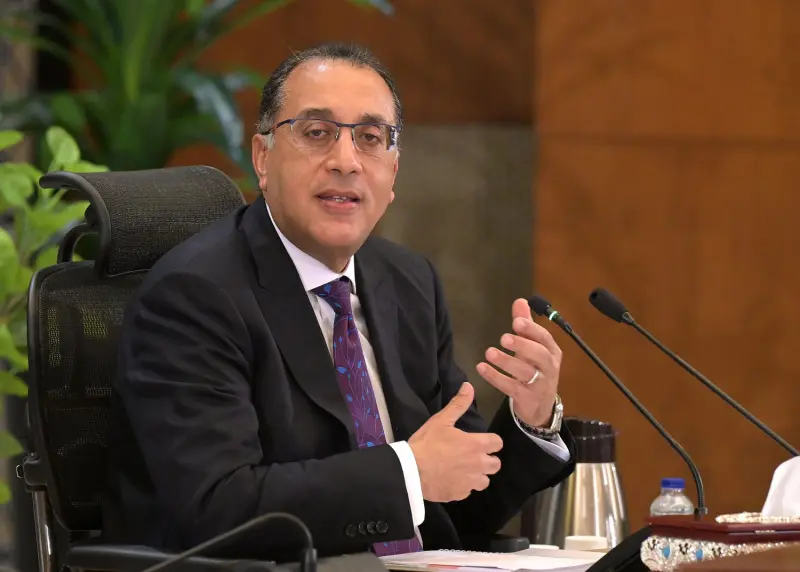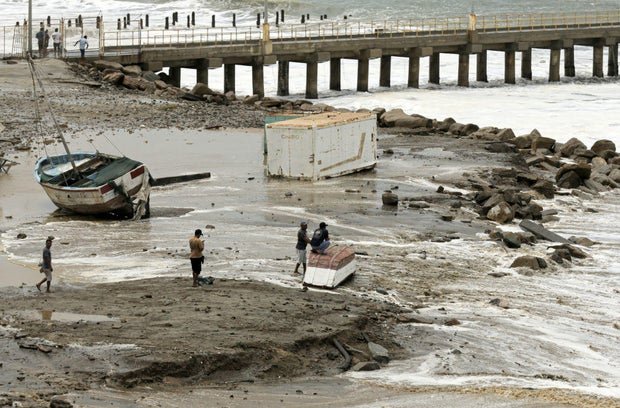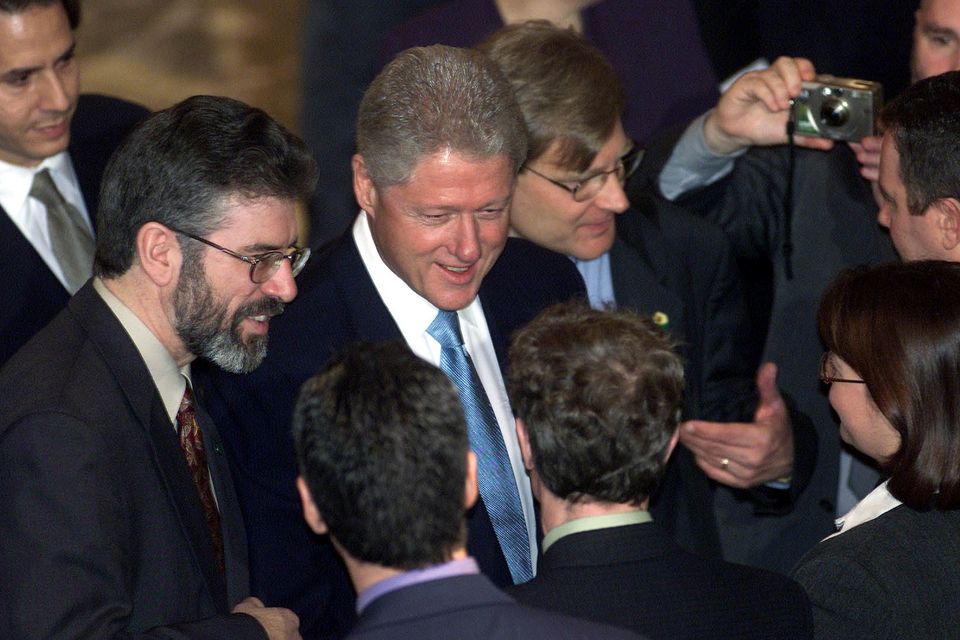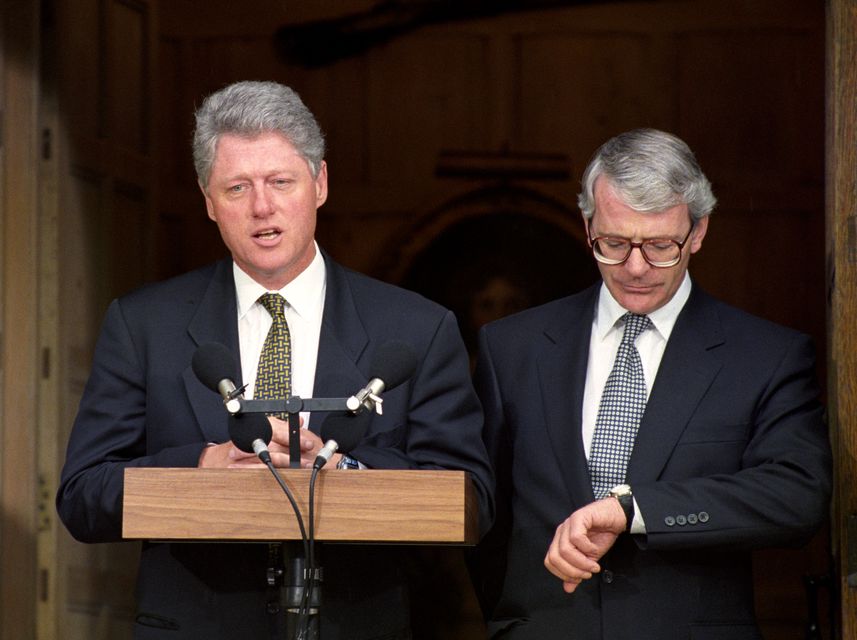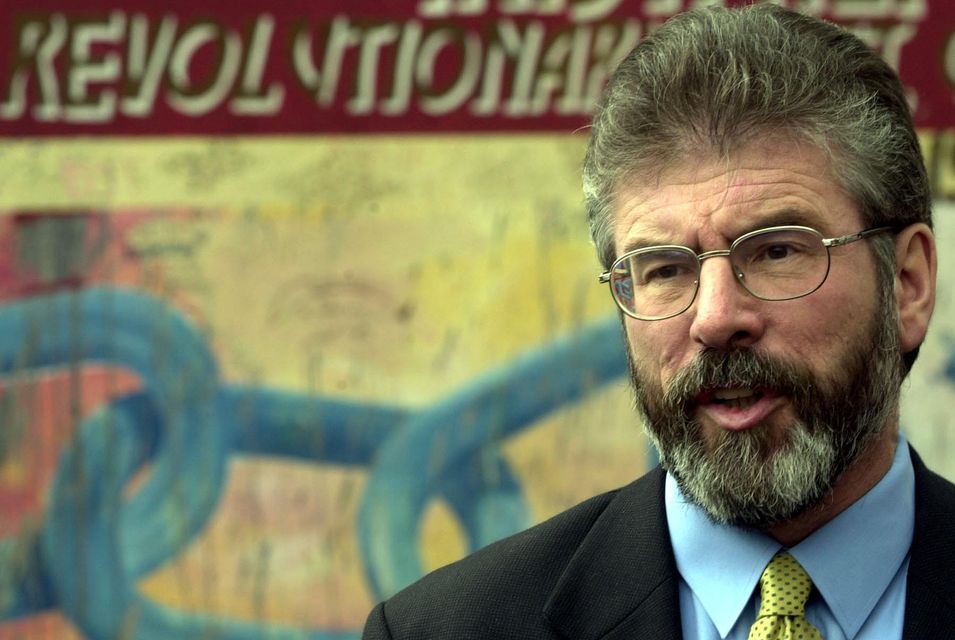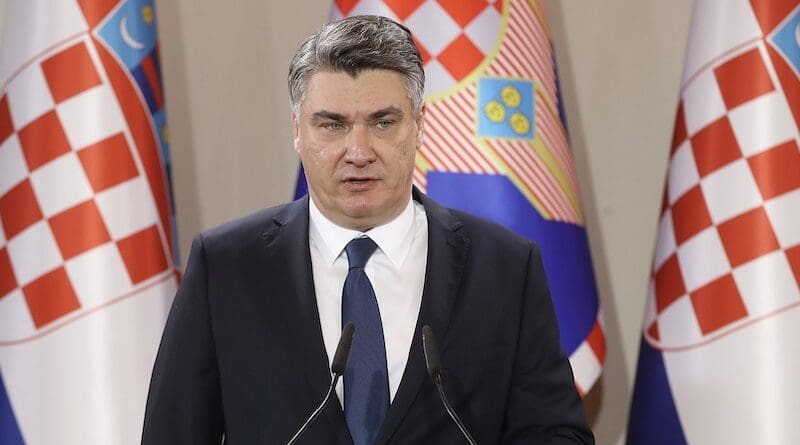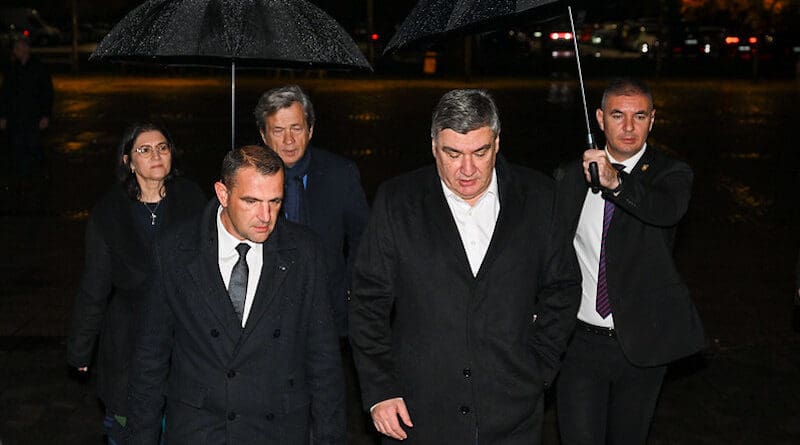Croatia’s presidential election is scheduled for 29 December 2024, with 3.8 million eligible voters. The president is elected through universal and equal suffrage, via direct elections and a secret ballot, for a mandate lasting five years. The entire territory of Croatia, including polling stations abroad, forms a single electoral constituency.
Eight candidates, five men and three women are competing for the presidency.
The candidates running for president of Croatia are: ● Zoran Milanović (Social Democratic Party of Croatia – SDP and allies), ● Dragan Primorac (Croatian Democratic Union – HDZ and allies), ● Miro Bulj (Most – The Bridge) ● Ivana Kekin (Možemo – We Can!), ● Branka Lozo (Dom i Nacionalno okupljanje – Domino – Home and National Gathering – Domino), ● Tomislav Jonjić (independent), ● Marija Selak Raspudić(independent), and ● Niko Tokić Kartelo (independent).
The presidential candidates have primarily focused their election campaigns on healthcare, education, the fight against corruption, and the migrant crisis—issues that essentially do not fall within the president’s remit—rather than addressing foreign policy topics and challenges (relations with neighbours, the EU, NATO) and the Croatian military, which do fall under the president’s competencies.
The intriguing legacy of Croatian presidents
Franjo Tuđman, the first president of the Republic of Croatia (1991–1999), is widely recognized for his pivotal role in establishing an independent and sovereign Croatian state. However, he is also criticised for numerous shortcomings, particularly his autocratic governance, with repercussions still evident today, especially in terms of organised crime, corruption, and the controversial process of “tycoonisation” of the Croatian economy.
Stjepan Mesić, who succeeded Tuđman as Croatia’s second president (2000–2010), faced the challenging task of addressing the political baggage left by his predecessor. Mesić demonstrated both vision and political courage, making significant strides in affirming Croatia’s position within the region and globally. He also championed the fight against organised crime and corruption, “declaring war” on the influential intelligence underworld still present in Croatia. He managed to end Croatia’s isolation, steer it back on the path towards EU and NATO integration, and reaffirm antifascism as one of the fundamental values of modern Croatia. However, he was unable to fully eliminate the effects of Tuđman’s legacy, as many of Tuđman’s key figures remained entrenched in Croatian politics, government, economy, and the security and defence sectors, often prioritising personal or party (HDZ) agendas over national interests. Since independence, Croatia has grappled persistently with the issues of the criminalisation of politics and the politicisation of crime.
The third president, Ivo Josipović (2010–2015), sought to remain non-partisan during his term in office. He avoided strategic missteps. Like other Croatian officials, Josipović was criticised for insufficiently utilising the potential of Croatia’s NATO and EU membership and for neglecting the country’s economic recovery. Nevertheless, Josipović made significant contributions to regional stability and Croatia’s reputation on the global stage.
Kolinda Grabar Kitarović served as Croatia’s fourth president (2015–2020), becoming the first woman to hold the office. She strictly adhered to HDZ policies and sought to reaffirm Tuđman’s concept of Croatia as the “bulwark of Christianity,” warning—or more accurately, fabricating—the so-called Islamic threat allegedly emanating from neighbouring Bosnia and Herzegovina. Her term can be described as “frivolous” and brought more harm than benefit to Croatia’s standing in regional and international affairs.
The fifth and current president, Zoran Milanović (2020–2025), is widely regarded as the most unconventional president in the history of the young Croatian state. He will be remembered as a “headstrong” president who challenged dominant Western global trends, particularly the prevailing EU and NATO policies on key international issues. A defining feature of his term is his constant confrontation with Prime Minister and HDZ leader Andrej Plenković. Milanović’s role as the sole counterbalance to the autocratic governance of Plenković and HDZ can be seen as a positive contribution to Croatian statehood and society.
The election favourite abstains from the campaign
Zoran Milanović is the frontrunner in the presidential election. This time, he has adopted a different strategy compared to the parliamentary elections in April, where he ran as a prime ministerial candidate despite warnings from Croatia’s Constitutional Court, while constantly at odds with Prime Minister Plenković and his cabinet.
Throughout the presidential campaign, Milanović has quietly carried out his presidential duties, largely refraining from engaging in day-to-day political events and avoiding confrontations through the media and social networks. In effect, Milanović is abstaining from the campaign. A similar situation occurred in Slovenia in 1997, when Milan Kučan, the favourite in the election, was re-elected as president of Slovenia despite effectively staying out of the campaign.
Donald Trump’s victory in the US presidential election stripped Plenković of his sole leverage against Milanović. Trump’s election signalled a period where European policy would need to align with his approach to the war in Ukraine. While the Milanović-Plenković rivalry initially worked in Plenković’s favour, this dynamic shifted with Trump’s election as the new US president.
According to analysts, Plenković had no choice but to step back from the election campaign due to the impending changes in US foreign policy, effectively ending any prospects of victory for his candidate, Dragan Primorac. So far, Primorac has struggled to emerge from Plenković’s shadow, with most Croatians viewing him not as a legitimate presidential contender but as a mere stand-in for the true candidate, Andrej Plenković.
Furthermore, Plenković knowingly chose a mediocre presidential candidate, believing he could not defeat Milanović. Even in the unlikely event of a Primorac victory, Plenković’s priority was to ensure that his leadership within HDZ would remain unchallenged. This decision has frustrated HDZ members, especially the so-called intellectual wing, who argue that far better and more competent candidates, capable of defeating Milanović, were overlooked because Plenković prioritised his personal ambitions over the party’s interests. Many believe that Plenković’s self-serving and autocratic approach will ultimately secure Milanović’s re-election.
Public opinion surveys suggest that Milanović is set to win more than a third of the votes in the first round of the election, with the second round expected to take place on 12 January 2025. Unlike Primorac, the other presidential candidates entered the race fully aware of their slim chances of winning, each motivated by different reasons.
Ivana Kekin’s candidacy aims to strengthen support for the Možemo party, while Marija Selak Raspudić is running to regain political visibility after parting ways with Most. Without a party of her own, she seeks broader public recognition and may even consider founding her own political organisation. Conversely, Miro Bulj is running to ensure that Most does not allow Selak Raspudić to dominate their political space following her departure from the party.
Public support for Ivana Kekin and Marija Selak Raspudić stands at around ten per cent, while Miro Bulj is backed by less than four per cent of voters, according to polls. Selak Raspudić was the only candidate analysts considered capable of advancing to the second round instead of Primorac, but she failed to build a strong campaign or expand her voter base to significantly boost her support.
The European Public Prosecutor’s Office (EPPO) reveals Croatia’s struggles with corruption
In the 2023 Corruption Perceptions Index, Croatia ranks at the bottom of the EU, placing 57th out of 180 countries.
The European Public Prosecutor’s Office (EPPO), headed by Laura Codruța Kövesi, is currently investigating the misappropriation of over 300 million euros in EU funds in Croatia, placing the country proportionally among Europe’s top offenders. Nataša Novaković[2], former head of the Conflict of Interest Commission, remarked, “Croatia loses 10 billion dollars annually to corruption. Just imagine how much money that is and the profound impact corruption has on all of us.” During his two terms as prime minister, Andrej Plenković has dismissed more than 30 ministers, predominantly over corruption allegations, yet he has failed to take accountability for the conduct of his closest associates, whom he personally appointed.
The latest “non-paper” concerns Croatia
Croatia was the last country to join the EU and is expected to be a genuine partner to all Western Balkan countries, which, in practice, is not the case.
Slovenia’s Minister of Foreign and European Affairs, Tanja Fajon, revealed that Slovenia and Germany have drafted a non-paper stipulating the exclusion of vetoes and blockades tied to unresolved bilateral disputes from the pre-accession process.
Analysts argue that the new non-paper is a response to Croatia’s detrimental role in the region, especially in its relations with Bosnia and Herzegovina, Montenegro, and Serbia, and that the EU is aware of this. Consequently, the latest non-paper seeks to mitigate the harmful impacts of Croatia’s actions in the Western Balkans, as the country frequently exploits its EU membership to address bilateral disputes. A parallel can be drawn with Bulgaria’s approach to North Macedonia. The proposed non-paper aims to eliminate the use of vetoes and blockades against neighbouring states over unresolved bilateral issues.
Qualified majority voting (QMV) will need to be employed in decision-making throughout the EU accession process to avoid obstructions by current EU member states in the integration process of candidate countries.
Croatia is haunted by the ghosts of its past
Croatia’s political spectrum is defined by two extremes: HDZ and SDP. The Croatian Democratic Union (HDZ) bases its ideology on anti-communism, the independence process, and the so-called Serbian threat in Croatia. However, communism is long gone, Croatia achieved independence in 1991, and Serbs have become a stabilising factor and a litmus test for Croatia’s democracy. The greatest credit for independence belongs to the Croatian people, who overwhelmingly chose to declare an independent and sovereign state. HDZ is clearly attempting to claim sole credit for Croatia’s independence, ignoring that it stemmed from the Croatian people’s aspiration for independence, as well as historical international circumstances and context—most notably the fall of the Berlin Wall. The party must confront internal criminalisation and abandon its idealisation of Franjo Tuđman. Although Croatia is now an independent and sovereign state, HDZ continues to “search for enemies”, be it Serbs, Yugonostalgists, and more recently, the so-called Muslim threat, perceived as a danger not only to Croatia but to Europe. The projection of alleged threats has become a means of political survival. Over the past decade, HDZ has increasingly aligned itself with a Christian identity, despite being conceived as a national movement without a specifically Christian orientation. The most recent example is the warning about the so-called Hungarian (Orbán) threat, issued by Deputy Prime Minister and Minister of Defence Ivan Anušić. Serbian President Aleksandar Vučić and Serbia remain a persistent topic in Croatian politics. Presidential candidate Ivana Kekin has gone as far as to claim that Croatia’s strategic interest is the removal of Vučić from power, with widespread support in Croatia for the protests unfolding in Serbia.
The Social Democratic Party of Croatia (SDP), the successor to the former League of Communists of Croatia, has been in a prolonged state of crisis. It failed to transform into a modern left-wing political party during the transition period and remains burdened by remnants of the past. Croatia and the countries of the region need robust social democratic parties, but not in the mould of the current Croatian SDP. Similar challenges are evident in other regional countries with social democratic movements.
HDZ and SDP stand as two radical examples on Croatia’s political stage, benefiting most from the ideological divide that continues to fracture the country, hinder societal healing, and prevent the state from functioning at its full capacity.
Croatia is a sovereign, independent, and internationally recognised state, a full member of the UN, EU, NATO, the Eurozone, Schengen, and other international organisations. These significant achievements, accomplished in a relatively short timeframe, are deserving of respect. But does this exceptional success translate into the progress of Croatian society? The development of Croatian society has been marred by numerous challenges and does not fully reflect these accomplishments. Additional efforts are needed to foster an open, democratic society rooted in civil liberties and the rights of every Croatian citizen, irrespective of their ethnic, religious, political, or other identity.
[1] IFIMES – International Institute for Middle East and Balkan Studies, based in Ljubljana, Slovenia, has a special consultative status with the United Nations Economic and Social Council ECOSOC/UN in New York since 2018, and it is the publisher of the international scientific journal “European Perspectives”, link: https://www.europeanperspectives.org/en .
[2] Večernji list, an interview with Nataša Novaković: ‘Hrvatska gubi 10 milijardi dolara godišnje na korupciju. Zamislite koliki je to novac i koliko korupcija utječe na sve nas’. Available at: https://www.vecernji.hr/vijesti/hrvatska-gubi-10-milijardi-dolara-godisnje-na-korupciju-zamislite-koliki-je-to-novac-i-koliko-korupcija-utjece-na-sve-nas-1761270



